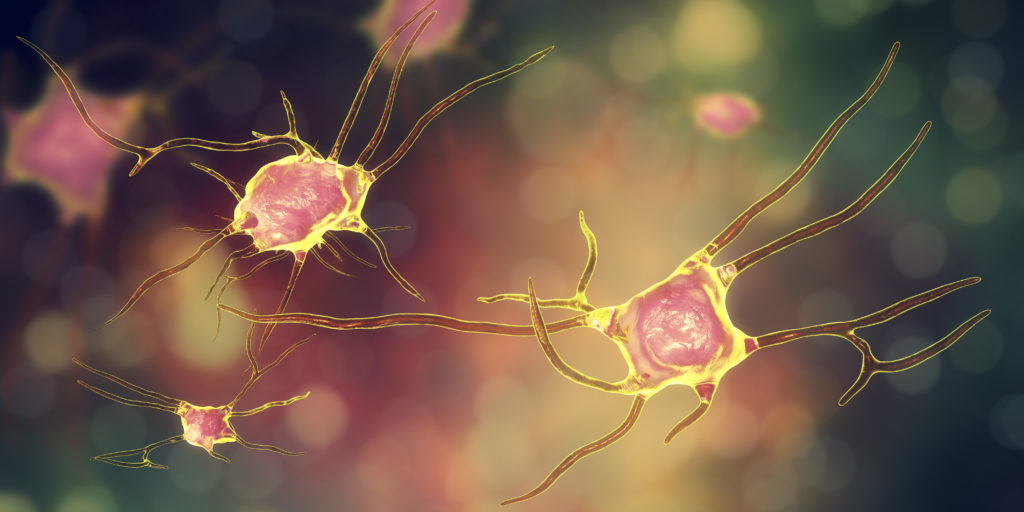Quick Hits
Daily brief research updates from the cognitive sciences

Always nice to know that you brain can grow – and it is still met with surprise when I explain how this can happen to audiences when speaking in public. But this recent research gives some fascinating insights into a new mechanism of growth in the brain.
Researchers around Terry Dean of the Children’s National Hospital in the USA have found a mechanism that is controlled by daily rhythms and this could lead to new insight and more effective methods to help recovery after brain injury.
Your brain cells, neurons are pretty fixed with new generation of cells only in very limited areas in the brain. However, they can rebuild and strengthen connections. There are also group of cells called micro glia or glial cells and these are considered the brains “helping” cells – they are also essential to healthy brain functioning performing many critical functions.
One of these goes under the technical name of NG2-glia, or “oligodendrocyte precursor”, sorry I know that won’t help you (in short, it’s one of the brain’s helping cells). Anyhow these are one of the few cells in the brain that can continuously regenerate. And what the researchers found is that these follow daily rhythms with proliferation of these cells coinciding with the highest levels of a factor known as Bmal-1RNA. This is a protein that helps the body clock stay in rhythm and is highest when we should be most active – during the day.
What is interesting is that this can help us guide recovery better by taking into account times of day during treatment – we also know that traumatic brain injury (TBI) can disrupt daily rhythms which could explain some of the negative effects.
Also, of interest is that we would probably assume that much healing would take place as night – but this shows not so in this particular case.
This highlights once more the importance of daily rhythms in just about everything!

Andy Habermacher
Andy is author of leading brains Review, Neuroleadership, and multiple other books. He has been intensively involved in writing and research into neuroleadership and is considered one of Europe’s leading experts. He is also a well-known public speaker, speaking on the brain and human behaviour.
Andy is also a masters athlete (middle distance running) and competes regularly at international competitions (and holds a few national records in his age category).
References
Terry Dean, Aissia Victoria Koffi, Evan Goldstein, Javid Ghaemmaghami, Vittorio Gallo.
Endogenous circadian clock machinery in cortical NG2-glia regulates cellular proliferation.
eneuro, 2022
DOI: 10.1523/ENEURO.0110-22.2022
More Quick Hits
Being “Hangry” Really Is A Thing
Quick HitsDaily brief research updates from the cognitive sciences o, scientists have now proven that being “hangry” is real thing. What took them so long? Well, first of all things which seem intuitively right such as the weather making pain worse...
Reward Drives Aggressive Behaviour Against “Others”
Quick HitsDaily brief research updates from the cognitive sciences s vs. them is known as in-groups vs. out-groups in psychology. This is the well-known effect of people being loyal to their own groups and being competitive and often aggressive to...
Low Oxygen Impairs Decision-Making
Quick HitsDaily brief research updates from the cognitive sciences ast year I reported on how pollution and bad air in offices correlates with lower performance and productivity. Something business should take note of. A study out of the University...
The Brain Waves That Drive Social Behaviour
Quick HitsDaily brief research updates from the cognitive sciences have reported in other places on the social regions of the brain (for review see here). And this has indeed been the standard approach – try to identify the specific regions in the...
Being Mindful Improves Relationships With Co-Workers
Quick HitsDaily brief research updates from the cognitive sciences he topic of mindfulness has been a hot topic for a number of years now. This is not to be confused with meditation which is often lumped together with mindfulness – because they do...
Engaging Leadership Boosts Employee Engagement, and Team Effectiveness, and Resilience
Quick HitsDaily brief research updates from the cognitive sciences paper just out has looked again at leadership style and impacts on employee engagement and also various team effectiveness measures. Greta Mazzetti of the University of Bologna,...






